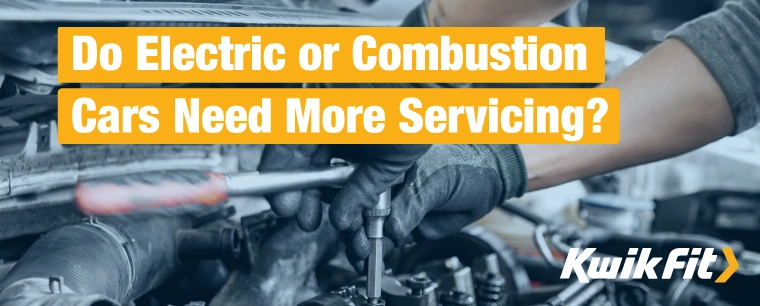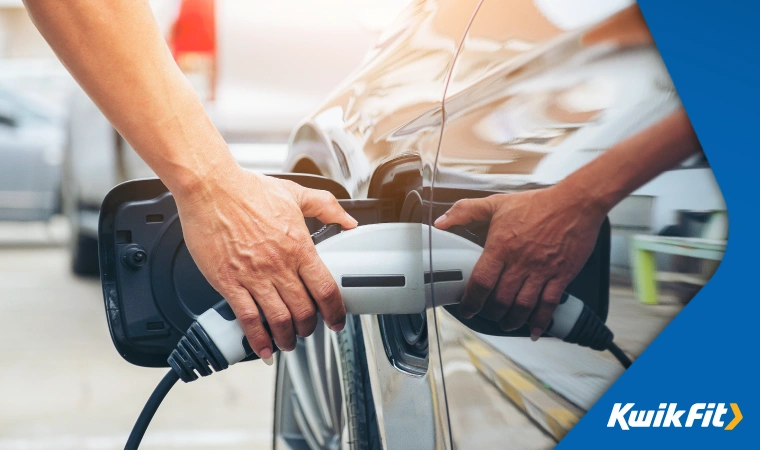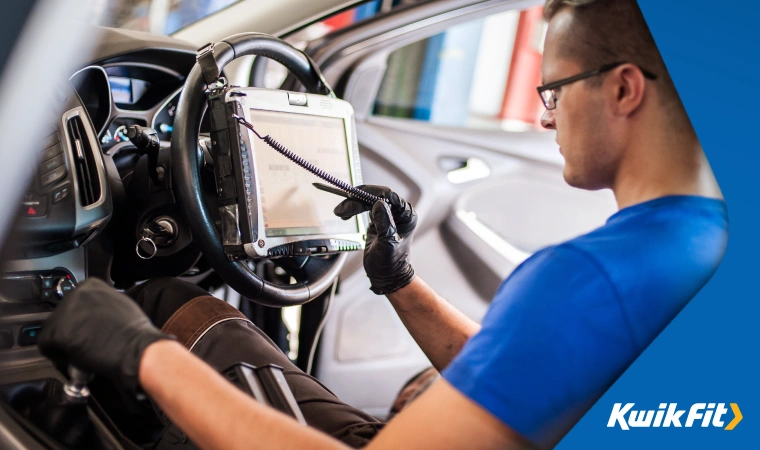Do Electric or Combustion Cars Need More Servicing?
Jack Dreyer | Friday 18th November 2022 8:30am

If, like many drivers these days, you’re considering making the leap to electric vehicles, you’re likely wondering what costs are involved.
The main costs of every vehicle can be split into running costs (fuel, insurance, tax) and maintenance costs (servicing, MOTs, repairs, etc). The question, then, is whether there’s a difference in cost between electric & combustion vehicles. If you can get away with servicing less frequently, then you save money in the long run.
Many drivers have historically saved on the cost of servicing by doing some DIY servicing themselves. But we highly recommend that you only ever have your EV serviced by a qualified technician – we explain why here.
What are car services for?

To answer the main question, we need to first look at what car services are usually intended for. Vehicle Servicing usually entails a combination of engine, fuel, and exhaust system checks (including oil & filter replacements) and mechanical checks & tweaks.
The second section, mechanical checks, tends to be the broadest – covering everything like brakes, suspension, tyre condition, and drive shaft condition. But there are also lots of things included like seatbelt checks, TPMS checks, and even battery condition checks.
With EVs, then, you don’t need to do any engine & exhaust checks or servicing because there isn’t a combustion engine & exhaust system on an EV! Unfortunately, however, that doesn’t mean there’s less servicing, the time tends to be taken to service other, more complicated things.
What needs servicing on an EV?
So while there may not be any exhaust checks, gearbox checks, or engine oil changes – you still have to check things like the condition of the drive chain, the electric motor, and (crucially) the health of the EV battery.
What’s more, with the current super high-tech state of the EV market, there’s a lot more that needs to be accounted for. Things like sensors, cameras, and state-of-the-art infotainment systems have all become incredibly complicated and increasingly specialist. Gone are the days where, with a socket set, a ratchet wrench, and lots of patience, you could take apart a car and reassemble it yourself.
Now, without real specialist knowledge, you’re likely to do more damage than good!
While there are fewer moving parts, EVs have many elements that still need servicing. The main things are:
Mechanics
Things like the Continuous Velocity (CV) joints, suspension, and steering.
Brakes
Surprisingly, brakes usually need servicing more frequently with modern EVs because the engine braking performed during regenerative braking works well enough that the brakes are only needed for emergency braking. As such, many brakes are liable to rust and seize (even with daily driving) without adequate servicing.
Tyres
EV tyres need to be built to withstand the much heavier load of EV battery banks – but even though they’re more rugged, they’ll need regular checking to catch premature wear and damage early.
Lights
Lights need checking as often as on any vehicle. However, many EVs will come fitted with LED assemblies – which can last up to ten times longer than Halogen bulbs. The downside, however, is that the LED bulbs aren’t replaceable, you have to replace the entire assembly. On the other hand, halogen or, more likely, xenon bulbs are simple to replace.
Battery & Cabling
Unlike regular 12v car batteries, EV batteries tend to take up the entire base of the car – and can be designed to operate as high as 600v! While the battery is technically capable of operating for up to 37 years before failing, in practice this is often a lot less and needs checking regularly to keep tabs on its condition. Likewise, cabling needs more regular checks – stray, frayed cables supplying power at 600v can quickly prove fatal.
Sensors
Sensors tend to need regular checks to ensure they’re still operating as they should and that there’s no buildup of debris..
How frequently should you service an Electric vehicle?

The frequency of servicing varies wildly depending on the make and model of a car. While most vehicle manufacturers recommend you have your car fully serviced once a year, the actual mileage interval of servicing can vary as much as 8000 miles – some models need to be serviced every 10,000 miles, for example, while others are usually happy to wait for every 18,000 miles!
Similarly, the servicing interval varies quite surprisingly between EV models. Tesla, for example, claims to have eliminated annual servicing through engineering advancements.
As such, it’s difficult to compare the real pros and cons of servicing against combustion engine vehicles.
It’s also worth keeping in mind that most electric vehicles are bought new these days, so you’re also likely to not notice the effects of skipping servicing for the first year or so (though, of course, we’d recommend you don’t skip on servicing).
If you’re looking to estimate lifetime costs of servicing for an EV that you’re interested in buying, be sure to look at its particular service schedule.
Need EV servicing?
If you need your EV serviced, trust the experts at your local Kwik Fit.
Any facts, figures and prices shown in our blog articles are correct at time of publication.
Featured Articles
Is it Illegal to Drive With One Headlight?
Saturday 19th July 2025
Wondering if it’s illegal to drive with one headlight? Learn about the safety risks and penalties of illegal blown bulbs and why you should fix them promptly.
Air Con in EVs & Hybrids: Experts Answer Your Questions
Monday 30th June 2025
Does air con drain EV batteries? Can you use the air con while charging an electric car? Find out the answers to these questions & more from Kwik Fit’s experts.
Why Is Your Car Making a Noise? Fixes & Tips
Friday 13th June 2025
When your car starts making unexpected noises, it can certainly be quite disconcerting; it may be nothing to worry about, but here’s what you need to know.









